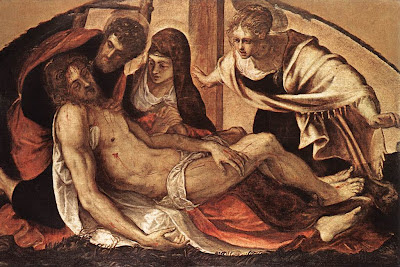
Preserve me, God, I take refuge in you.
I say to the Lord: “You are my God.
My happiness lies in you alone.”
He has put into my heart a marvelous love
for the faithful ones who dwell in his land.
Those who choose other gods increase their sorrows.
Never will I offer their offerings of blood.
Never will I take their name upon my lips.
O Lord, it is you who are my portion and cup;
it is you yourself who are my prize.
The lot marked out for me is my delight:
welcome indeed the heritage that falls to me!
I will bless the Lord who gives me counsel,
who even at night directs my heart.
I keep the Lord ever in my sight:
since he is at my right hand, I shall stand firm.
And so my heart rejoices, my soul is glad;
even my body shall rest in safety.
For you will not leave my soul among the dead,
nor let your beloved know decay.
You will show me the path of life,
the fullness of joy in your presence,
at your right hand happiness for ever.

